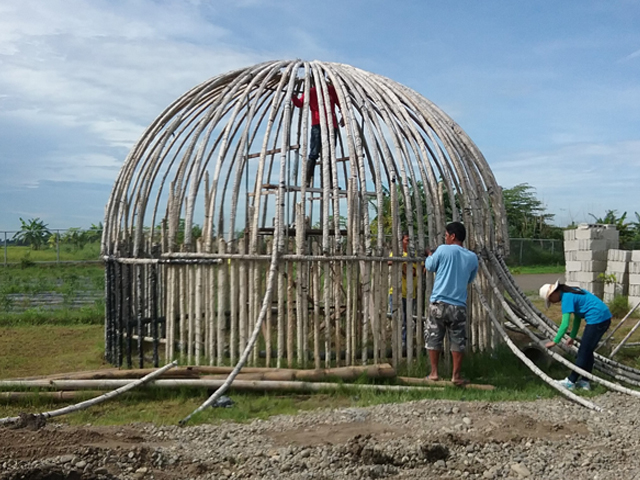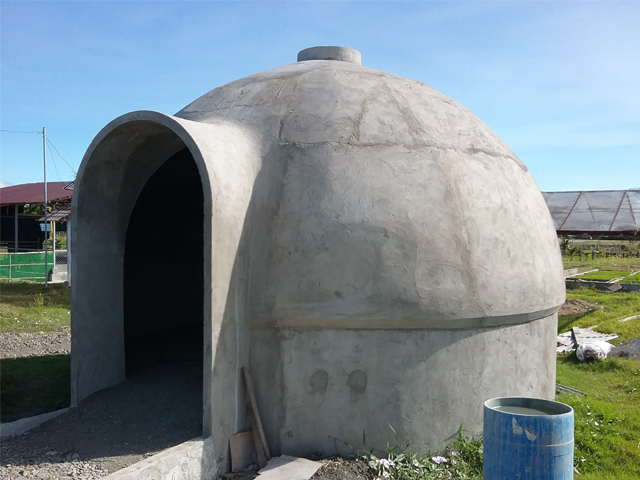In a typhoon-prone country like the Philippines, farm investments are always at risk!
Dr. Ricardo Orge, a PhilRice engineer-scientist, has developed an innovation, called kwebo, to address this quandary.
Orge said kwebo is an easy-to-construct, typhoon-resistant structure, requiring minimal involvement of skilled workers.
The term kwebo is from two Filipino words, kweba (cave) and kubo (nipa hut) combined. It denotes a farm structure that has the strength of a cave, with the simple design of a nipa hut.
He thought about this innovation during his hometown visit in Leyte, six months after typhoon Yolanda in November 2013.
“There seemed to be a shortage of carpenters repairing damaged structures in the community. Even those capable of hiring dozens of carpenters had to use tarpaulins as temporary substitute for their blown down roofs. It even took another year before the people could actually repair their farm structures,” Orge says.
 With the development of kwebo, farmers can construct their own low-cost, typhoon-resistant multipurpose farm structure that can be used as a dwelling place for farm animals and safehouse for equipment.
With the development of kwebo, farmers can construct their own low-cost, typhoon-resistant multipurpose farm structure that can be used as a dwelling place for farm animals and safehouse for equipment.
Its construction is inspired by the Lego, a popular children’s toy composed of building blocks, termed as basic construction units (BCUs) for kwebo, according to the scientist.
BCUs are composed of pre-fabricated structural elements that function like hollow blocks to build roofs, floors, beams, and posts.
The first kwebo prototype can be found in the FutureRice Farm at PhilRice, with the shape of a dome or a tunnel, and a floor area of 20 sq m. It is currently utilized as seed storage and shelter for a dryer.
The project team is now evaluating the prototype to ensure its structural integrity, simplicity of construction, functionality, and cost effectiveness. Initial results yielded some optimized designs of BCUs using concrete and indigenous, recycled, and readily available materials like bamboos, with a system of assembling these.
This technology is expected to be adopted in rural farming communities where households can be trained to fabricate BCUs and assemble their own kwebo.





